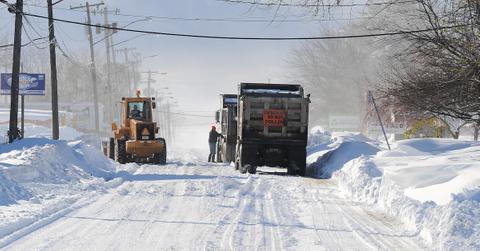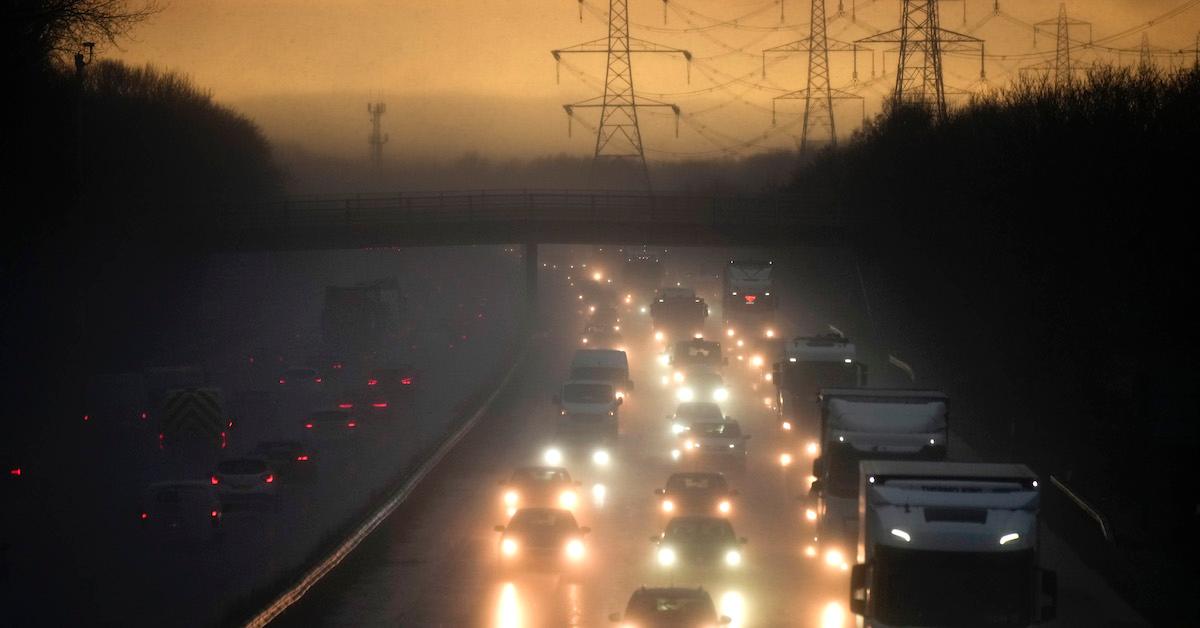EPA Tackles Pollution by Tightening Truck Emission Restrictions
Updated Dec. 21 2022, 12:39 p.m. ET

Earlier this year, in March 2022, Biden proposed a rule that tackles the problem with truck pollution. And the restrictions themselves were a little ambitious, the EPA has implemented new truck emission restrictions.
This will heavily reduce nitrogen oxide emissions, which are known to cause heart and respiratory problems. As the first tailpipe restriction to be implemented in decades, manufacturers will be required to cut the pollutant altogether within the next five years.
“EPA is taking significant action to protect public health, especially the health of 72 million people living near truck freight routes in America, including our most vulnerable populations in historically overburdened communities,” EPA Administrator Michael S. Regan stated in a press release. “But we’re not stopping there.
"This is just the first action under EPA’s Clean Trucks Plan to pave the way toward a zero-emission future," he continued. "These rigorous standards, coupled with historic investments from the Inflation Reduction Act and the Bipartisan Infrastructure Law, will accelerate President Biden’s ambitious agenda to overhaul the nation’s trucking fleet, deliver cleaner air, and protect people and the planet.”

What to know about the new truck emission restrictions:
On Tuesday, Dec. 20, the EPA finally cracked down on highly pollutive trucks, busses, and vans with the Clean Truck Plan.
According to the press release, heavy-duty models made in 2027 and beyond will be required to heavily reduce their smog and soot emissions. As a result of the restrictions, officials expect to see a 48 percent reduction in nitrogen oxide, 28 percent less benzene, 23 percent less volatile organic compounds, and 18 percent less carbon monoxide.
Though trucks only make up about 4 percent of U.S. vehicles, per CNBC, they account for about 30 percent of vehicle emissions — which is why this was a top priority for environmental purposes.
“These rigorous standards, coupled with historic investments from the Inflation Reduction Act and the Bipartisan Infrastructure Law, will accelerate President Biden’s ambitious agenda to overhaul the nation’s trucking fleet, deliver cleaner air, and protect people and the planet,” Regan stated.
But this is only a baby step towards the ultimate goal. Eventually, the EPA hopes to transition to zero-emissions trucks, to prevent tailpipe pollution from affecting the climate, as well as human health.
But how does truck pollution affect human health?

How does air pollution affect the human body?
Truck pollution — and air pollution overall — not only affects the planet, but it also takes a serious toll on the human body.
Air pollution is caused by a number of contaminants, including: ozone, carbon monoxide, sulfur dioxide, lead, nitrogen oxides, particulate matter, carbon dioxide, methane, and chlorofluorocarbons. Many of these are toxic to human life.
Certain pollutants can exacerbate asthma, chronic obstructive pulmonary disease, and bronchitis; meanwhile, sulfur dioxide and nitrogen oxide can impact both respiratory and cardiovascular conditions, as well as the nervous system, kidney function, and beyond.
Air pollution in general is also linked to cancer, strokes, and even mental health problems. Needless to say, this is an important matter that has gone unaddressed for far too long.